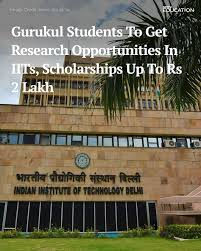Higher education scholarships promote management studies
- Education India
- Nov 19, 2022
- 2 min read

The livelihoods of millions of people are still at peril due to the pandemic. International students, particularly those from emerging economies, have been severely impacted by the crisis. According to UNICEF, kids around the world have wasted an estimated 1.8 trillion hours of face-to-face learning due to the pandemic.
Many households are faced with diminishing income, shrinking savings, or defaulting on bank debts as a result of the protracted lockdowns. The amount of requests for financial aid has dramatically increased.
The INSEAD "Force for Good" campaign fosters innovation and transforms business and society on a worldwide level. In these difficult times, it is committed to assisting more gifted students in getting access to top-notch management education. In order to attract the best talent, a portion of the money raised during the campaign is used to increase the number of scholarships available.
According to Ilian Mihov, Dean and Professor of Economics at INSEAD, higher education scholarships may enable talented students from all backgrounds and countries to push equality, diversity, and advance economic progress.
Tensions deriving from expanding economic inequality, which are exacerbated by the disruptions brought on the Covid-19 difficulties, are among the largest problems currently plaguing society. "Business schools all over the world play a crucial role in developing the next generation of a talented workforce and encouraging favourable economic outcomes. By providing equitable possibilities, scholarships can aid in redressing this inequality, says Mihov.
Virtual reality to boost students’ engagement
During the pandemic, students around the world were also forced to adapt quickly, with remote learning becoming the new normal overnight. As a result, learning with technology is now part of a holistic educational journey.
The VR Immersive Learning Initiative launched by INSEAD in 2019 to boost engagement, retention of knowledge and personalisation of learning helped many international students who were not able to travel as much as they like to learn from various places and cultures. This enabled ‘virtual’ borderless learning and today, over 4,500 of its students and participants have experienced VR around the world, both remotely and in classrooms at its campuses in France, Singapore, and Abu Dhabi.“Bringing new tools into the classroom is important and VR is the next step,” says Ithai Stern, associate professor of Strategy at INSEAD and academic director of the VR Immersive Learning Initiative. Its latest immersive case of Mission to Mars is a good showcase of the technology and can redefine management and executive learning. Using VR headsets, participants ventured out to the red planet and moved between the immersive journey and the classroom where they analysed and discussed the different events. MBA students were also brought to help save the turtles on the beaches of Cape Verde, western Africa. In all these cases, VR enabled students to better understand the natural setting and the challenges to allow them to develop exceptional real-world solutions for the organization’s core strategic problems. By using VR, resources are also effectively allocated, and it saves the cost and time of travelling to the real location. Professor Stern cautioned that it is important to note that immersive experiences cannot replace in-person experiences or methods altogether; it is a supplementary tool.





Comments